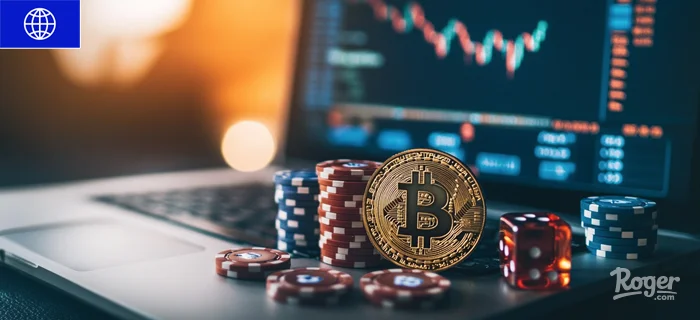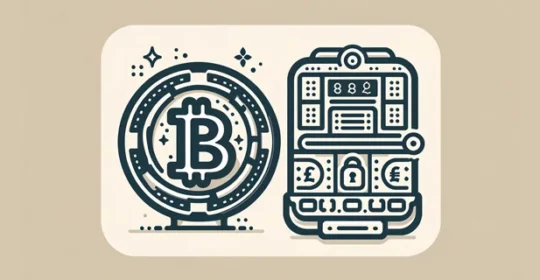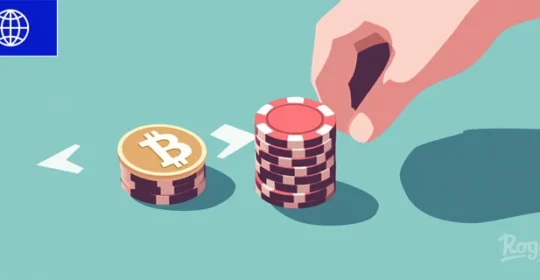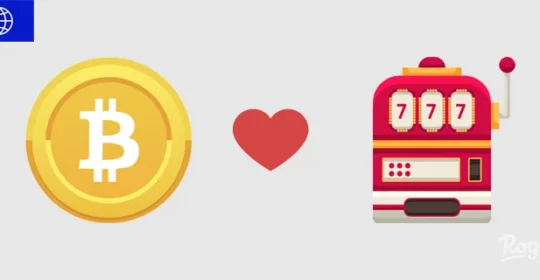Frequent online casino players may have noticed a rising trend: Crypto casinos.
But truth be told, they aren’t exactly new. The first gambling games using Bitcoin appeared in 2012, three years after Bitcoin made it to the headlines for the first time.
👉 However, it has been gaining a lot of space lately, and the rise of NFTs in gambling is attracting even more attention from crypto enthusiasts.
Here’s a quick overview of how and why digital assets are taking the iGaming world by storm.
Table of contents
Cryptocurrency and iGaming
The online casino industry was already booming when the first digital assets came by.
The first online casino sites emerged in the mid-90s, surpassing 700 platforms by 1998. However, they come with drawbacks—requiring sensitive personal and banking details, while banks may hesitate to process gambling transactions.
Worse still, some banks flag users for gambling operations, reducing their access to credit.
Cryptocurrency (e.g., Bitcoin) and blockchain technology have solved those issues, and now players can enjoy a wide range of games with complete privacy and safety. Crypto operations don't require ID disclosure or banking details, and blockchain-based operations (including crypto payments and decentralised gambling) are also encrypted and immutable.
The first-ever crypto casino, SatoshiDice, opened in April 2012 and was named after Satoshi Nakamoto, the “Bitcoin inventor. ” The initiative opened new horizons for the recently born technology and was crucial for its development.
The extra layers of safety allowed for creating “provably fair” games with heavy encryption and highly complex algorithms.
The rise of NFTs
The concept of NFT (non-fungible token) is more recent than Bitcoin, but just as popular.
The first NFT was created in 2014, but the format only began to gain traction in 2021, when Beeple (a famous digital artist) signed a set of NFTs for over USD 9 million. Unlike cryptocurrencies, where one is just the other (fungible), NFTs are unique.
🚀 The online gambling industry didn’t take long to understand its potential.
NFT gambling lets users buy, sell, and trade digital assets in a secure and engaging environment, reshaping the iGaming industry. Like crypto, NFTs can be exchanged for cryptocurrency, attracting more collectors and enthusiasts to the growing gaming community.
Like Bitcoin, NFT transactions are encrypted, anonymous, and often faster and cheaper than traditional payments.
Modern virtual entertainment
Cryptos and NFTs aren’t simply another payment method option.
Crypto-based casinos offer exclusive games where players can earn and trade digital assets. However, NFTs and Bitcoin go beyond just online casinos in the gambling world. Here are some other ways they’re used.
Sportsbooks
Cryptos and NFTs can also work for sports betting, as non-fungible tokens have opened new avenues between clubs, fans, and sportsbooks.
For instance, players can get NFTs straight from their favourite teams and unlock unique betting markets with them. The list of crypto-based sportsbooks with a wide array of digital assets is never-ending.
Lotteries
Here’s an exciting development of NFT gaming: NFT-based lotteries.
Here, players must buy tokens that will be their “lottery ticket” stored in a blockchain. Since NFTs are unique and easily verifiable, they are safe for gaming.
Better still, each NFT can increase its value over time, especially if it’s the winning ticket.
Ahead of the game – The future of crypto casinos
For many, crypto casinos are already the industry's future, but there’s always room for improvement.
The creation of provably fair games, tokenomics, and NFT integration already represents a massive transformation in the online gambling landscape. Platforms will likely have to comply with emerging regulations worldwide, which means more safety for players.
Players can also expect more VR and AR-based games, creating even more engaging experiences. The tokenisation of in-game assets is already a reality in the iGaming industry, but it’s already rising.
👀 Additionally, the number of decentralised platforms, that is, platforms that aren’t controlled by a central authority, is also likely to increase, meaning more decision power and transparency for players.
Whatever digital assets or casino you choose, make sure you play responsibly.





